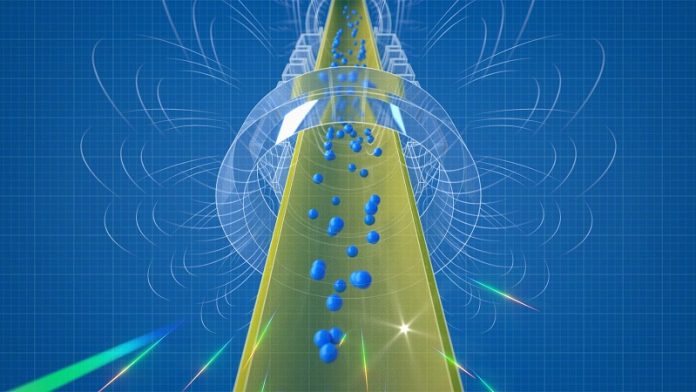
Scientists at CERN in Geneva, Switzerland, have been delving deep into the secrets of the universe, studying a mysterious substance known as antimatter.
They have been exploring whether antimatter could have the potential to defy gravity and essentially “float” instead of falling downwards like regular matter.
The results of this groundbreaking research, detailed in the journal Nature, reveal that, just like regular matter, antimatter also falls under the influence of gravity.
Antimatter is essentially the twin of normal matter, but with opposite properties. When a particle of matter meets a particle of antimatter, they annihilate each other.
Scientists have been intrigued by antimatter, pondering its potential uses and trying to comprehend why our universe is predominantly composed of matter, with very little observable antimatter, given that both should have been created in equal amounts during the Big Bang.
To study the behavior of antimatter in relation to gravity, the scientists worked with antihydrogen, a substance made of an antiproton and a positron.
They trapped antihydrogen atoms in a special container called a magnetic bottle and observed whether these atoms would move upwards, displaying antigravity properties, or downwards, following the normal gravitational pull.
Conducting this experiment required immense precision and control to avoid any external influences, like stray electric fields, which could potentially disrupt the observations.
Thus, researchers meticulously adjusted the magnetic fields to ensure that the antihydrogen atoms were influenced only by gravity during the observations.
The experiment concluded that antimatter does not defy gravity—it falls downwards, obeying the rules of gravity just like normal matter.
This discovery is consistent with Einstein’s theory of general relativity, which makes no distinction between matter and antimatter in their response to gravitational forces. This outcome, though seemingly unsurprising to some, is pivotal as it reinforces our existing understanding of the universe and provides a more solid foundation for future scientific explorations and innovations in physics.
The research team isn’t stopping here; they intend to refine their experimental setup to increase its sensitivity a hundredfold to detect any subtle details that might have been overlooked initially.
While the results did not portray antimatter as a fantastical, gravity-defying substance, the exploration has indeed expanded our understanding and opened doors to more detailed studies and possibilities.
It’s noteworthy that this groundbreaking research was not solely the endeavor of experienced scientists; many undergraduate students were actively involved in the experiment, contributing significantly to the assembly and operation and learning valuable lessons in physics along the way.
In conclusion, the study of antimatter may not have revealed its ability to levitate, but it has significantly enriched our knowledge about the fundamental principles governing the universe.
The meticulous work done at CERN underscores the enduring importance of exploration, inquiry, and validation in science.
The enigma of the universe is boundless, and our pursuit to unravel its secrets is continually advancing, promising more discoveries and insights in the years to come.
Follow us on Twitter for more articles about this topic.



